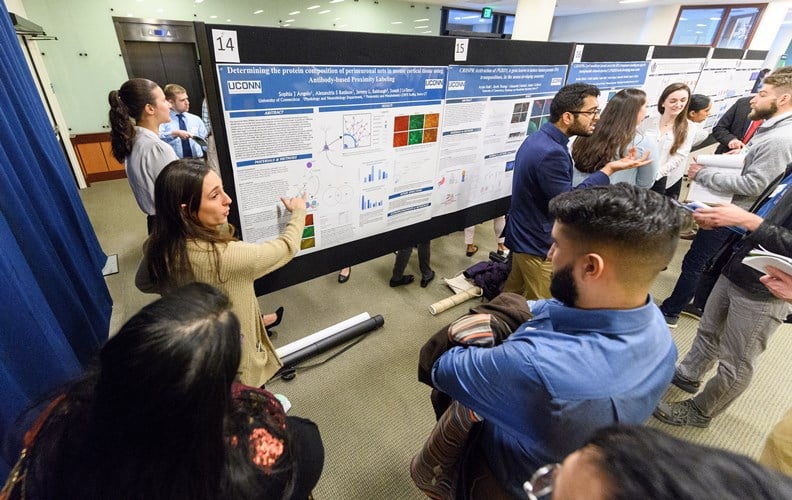
Quinnipiac University hosted its annual Northeast Undergraduate and Graduate Research Organization for Neuroscience (NEURON) conference on Sunday, February 23, 2020. This year was the conferences 33rd year and it was co-hosted by University of Connecticut (UCONN).
What is NEURON?
The Northeast Undergraduate and Graduate Research Organization for Neuroscience (NEURON) is an organization that supports the undergraduate and graduate education and research in the northeast regions of the United States.
NEURON’s Primary Goals:
- To provide an open forum for neuroscience undergraduate and graduate students to present and discuss their work with students and faculty of similar interests.
- To provide faculty an opportunity to discuss curricular and research issues in neuroscience, biopsychology and related areas.
- To provide resources to enhance communication and collaboration among neuroscience researchers and educators.
In order to achieve these goals, NEURON has annual (and formerly bi-annual) conferences that are focused on enhancing neuroscience training. The one-day conference provides a forum for undergraduate and graduate students to present and gain feedback from peers and faculty on the research in which they have engaged during the academic year. Students and faculty participate in workshops that discuss important topical and pipeline issues in neuroscience. Notable neuroscientists are invited to provide the keynote address. The diversity of the agenda provides a well-rounded opportunity for all attendees to engage in rigorous science, while promoting and encouraging the development of neuroscientists in training.
For more information or to get involved, visit: http://www.quinnipiac.edu/neuron
Founded in 1978, the Council on Undergraduate Research (CUR) focuses on providing high-quality and collaborative undergraduate research, scholarly, and creative activity. Among the many activities and networking opportunities that CUR provides, the organization also offers support for the professional growth of faculty and administrators through expert-designed institutes, conferences, and a wide-range of volunteer positions. The CUR community, made up of nearly 700 institutions and 13,000 individuals, continues to provide a platform for discussion and other resources related to mentoring, connecting, and creating relationships centered around undergraduate research. CUR’s advocacy efforts are also a large portion of its work as they strive to strengthen support for undergraduate research. Its continued growth in connections with representatives, private foundations, government agencies, and campuses world-wide provides value to its members and gives voice to undergraduate research. CUR is committed to inclusivity and diversity in all of its activities and our community.
CUR focuses on giving a voice to undergraduate research with learning through doing. It provides connections to a multitude of campuses and government agencies, all while promoting networking and professional growth to its community.


